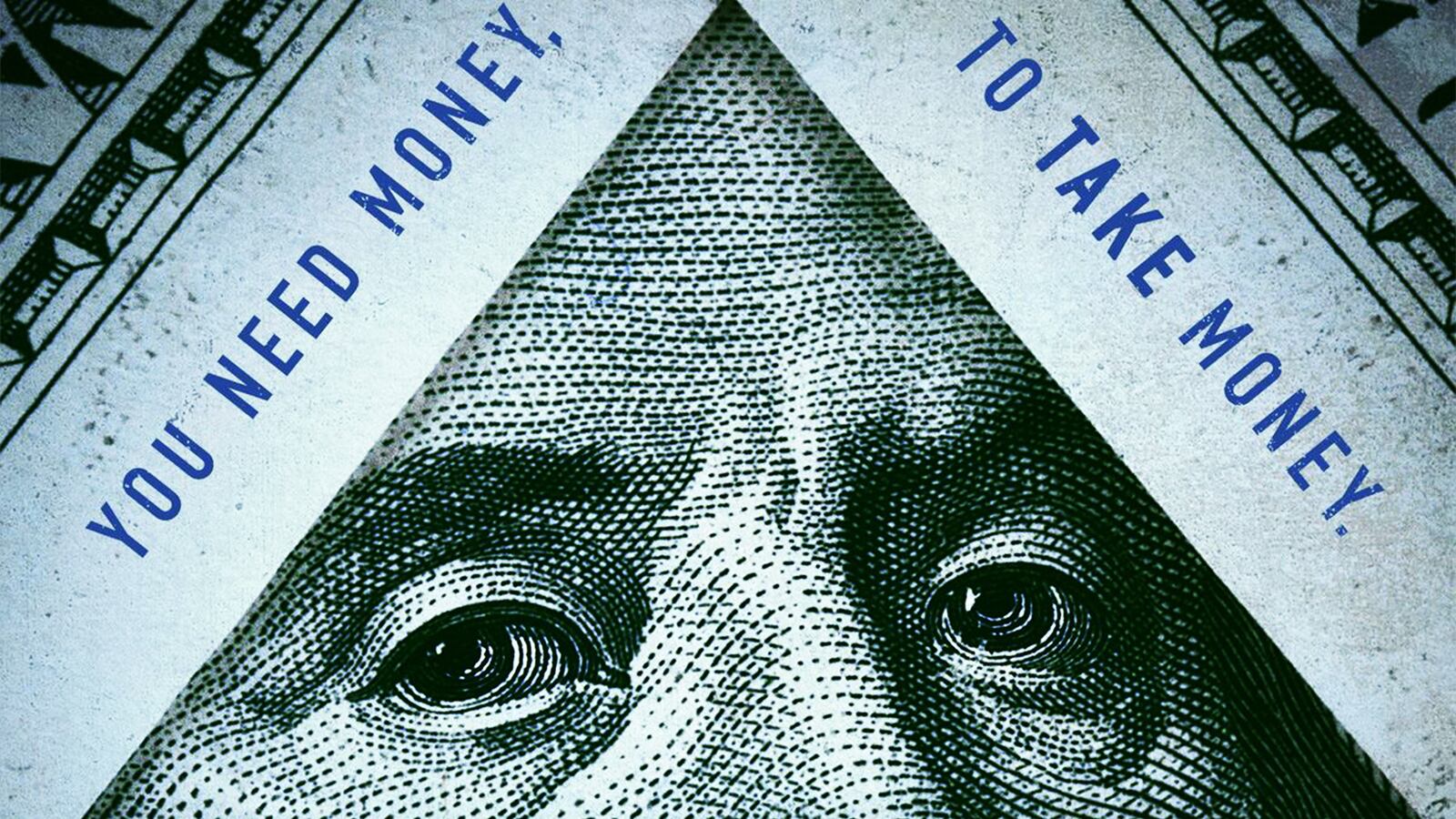Each episode of Netflix’s new documentary series, Dirty Money, centers on a scam. Helmed by Alex Gibney (Going Clear: Scientology and the Prison of Belief, Enron: The Smartest Guys in the Room), the show’s six episodes range from covering Big Pharma to maple syrup.
The final episode covers Donald Trump.
Needless to say, it’s unsettling to watch, and prompts more despair than anger or rage. Coming a year into Trump’s presidency, the episode doesn’t have anything to say that hasn’t already been said. Rather, it’s a reminder of a long history of hucksterism and broken promises, as told by the people who fell in and out of his orbit along the way (including, notably, Russell Simmons).
Though it’s compelling to hear from the people that Trump swindled through his real estate blunders and the scam that was Trump University, it’s journalist Tim O’Brien who proves to be the most compelling talking head. While writing TrumpNation: The Art of Being the Donald, he spoke to Trump’s colleagues as well as Trump himself, who was open and amenable to interviews right up until the book actually hit shelves. He filed a suit against O’Brien for claiming that Trump was worth $250 million max, contrary to Trump’s constant claims that he’s worth billions. The suit was ultimately dismissed, and the dismissal was upheld even after Trump attempted to appeal the decision.
The episode opens with the voice of director Fisher Stevens. “Do you think Donald Trump is really a good businessman?” he asks. “Donald Trump, in the scope of American business life, really shouldn’t be understood as someone in the tradition of John Rockefeller, Steve Jobs, or Henry Ford,” O’Brien responds. “He’s P.T. Barnum.”
It’s a damning assessment, and one that sets the stage for everything that follows. For instance, in light of the suit that Trump filed against O’Brien, take what gossip columnist A.J. Benza has to say about the president. Apparently he was happy to let Benza write whatever he wanted, so long as he was described as a “billionaire.” It’s always been about branding and image, to the point that the truth seems to have never really mattered.
Jonathan Braun and Bill Pruitt, supervising editor and producer of The Apprentice, further drive the point home. The image that Trump cultivated via the show was one of success and sophistication, but it was all manufactured. (Braun and Pruitt both note that the actual Trump headquarters were falling apart, citing crumbling wood and strange smells in the building.) The gloss that characterized the show was all a part of the set, rather than indicative of Trump’s actual M.O. And more than that, it was meant to serve as parody. Instead, it was taken as gospel.
In 2005, Randal Pinkett won the fourth season of The Apprentice, taking a one-year contract with the Trump Organization. Though he expresses his gratitude for the doors that the opportunity opened, he also notes that he learned not to take anything to Trump if he couldn’t frame it in a way that would make it clear “what’s in it for Donald.”
“It was an unnecessarily combative culture,” he adds, noting that Trump’s public belligerence (Pinkett’s words are intercut with clips of Trump repeatedly referring to physical assault as a problem-solving method) seemed to translate to his business practices.
As Stevens lays out Trump’s history, it becomes increasingly clearer that Pinkett’s not far off the mark. Every single one of Trump’s tanked endeavors seems to come down to an inability to think into the future, and to judge risk and reward. One of the more striking segments recounts how, during his presidential campaign, people on his team reached out to the Kremlin for political favors in the interest of building a Trump Moscow, as well as pointing out Trump’s relatively lenient outlooks on controversial figures like the Philippines’ demagogue president Rodrigo Duterte, seemingly based on having Trump properties in the according countries.
Despite all this, Trump’s projected brand remains the same. The more time that passes, however, and the more the curtain is pulled back, the more it becomes apparent that this is a brand born out of, in the words of journalist Adam Davidson, “willful blindness.”
It’s a fabulism that scans with O’Brien’s story about watching Sunset Boulevard with Trump. He cites the scene in which Norma Desmond, watching an old movie of hers, exclaims, “Have they forgotten what a star looks like? I’ll show them! I’ll be up there again, so help me!” According to O’Brien, Trump stopped the movie then, saying, “Isn’t that dialogue great?” That that scene, one of destructive delusions of grandeur, was the one that struck Trump speaks to his overall outlook just as much as his now infamous interview with Errol Morris, in which he cited Citizen Kane as his favorite movie, and then said that Kane should have “[gotten himself] a different woman.”
It’s not clear exactly what audience this episode is meant for, as it’s not really moralizing as much as it is stating facts that have already been made public over the course of Trump’s campaign and presidency thus far. But the interviews with those who have directly been affected and hurt by Trump’s incompetence (“Maybe I’m susceptible to sales pitches,” laments a former Trump University student) put a more personal spin on things than we may be used to seeing, and the other episodes in the series arguably put Trump in the company that he deserves.






